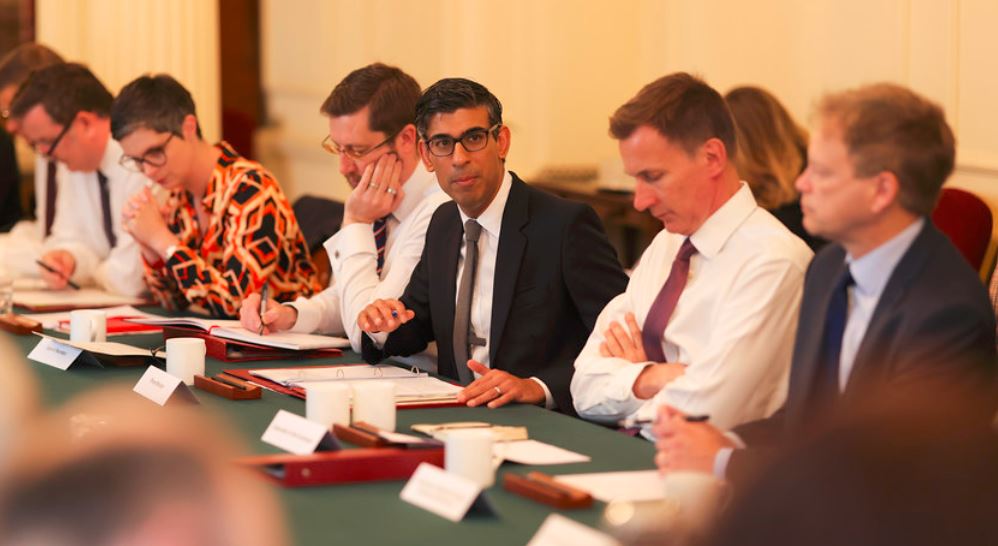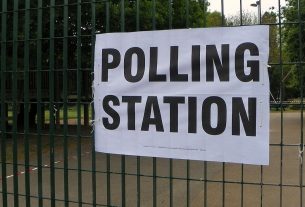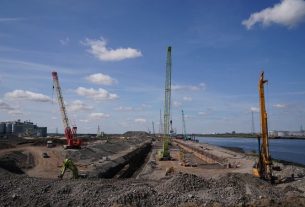Rishi Sunak has signalled he is willing to overrule independent review bodies recommendations for public sector pay rises, provoking fury from trade unions who say millions will be left even worse off.
The prime minister said he will block public sector pay rises if they are considered unaffordable because they could set off a “wage-price spiral” embedding inflation in the UK economy, reports the Times [non-paywall link].
Unions representing millions of workers expressed their outrage at Sunak’s claim he will make “affordable” and “responsible” decisions on public sector pay which “may not always be popular in the short term”.
“There is no point in me doing something that sounds popular and nice today, for example on public sector pay,” said Sunak.
“I would be giving with one hand and we would just be taking with the other through higher inflation and interest rates. That’s not the right type of leadership that the country needs, and that’s not what I am going to do.”
Unions warned such a decision to overrule the independent pay review’s recommendations about public sector pay rises – expected to 6% – would have “profound consequences” for industrial relations, which are already severely damaged after months of strikes over pay.
Sunak’s statement is especially controversial given ministers repeatedly defended their offers to end strikes with below inflation pay rises by insisting the government was following the advice of the pay review bodies.
Assistant general secretary of Unison Jon Richards described the comments as “farcical.” He accused the government of “hiding behind the NHS pay review body” for months, adding: “For the prime minister to be pondering blocking the other pay review bodies now is utterly farcical.”
General secretary of the NASUWT teachers union Patrick Roach said: “Education is already being damaged by the worst teacher recruitment and retention crisis in over 50 years but the education secretary [Gillian Keegan] appears willing to turn the current crisis into an unmitigated disaster.”
Roach continued: “If the government chooses to ignore the recommendations of the pay review body, this will have profound consequences for future industrial relations, with industrial action likely in the autumn,”
The TUC’s general secretary Paul Nowak said: “Instead of blaming workers who can’t afford to put food on the table or petrol in their cars to get to work, ministers should focus on a credible plan for sustainable growth and rising living standards.”
Pay review bodies have already submitted their recommendations to ministers which are expected to be released next month along with formal pay offers. The Guardian earlier reported that teachers are recommended a 6.5% increase while the Times said at least 6% has been recommended for police officers and junior doctors. The rises are is estimated to cost more than £5 billion.
Junior doctors announced a new wave of strikes next month with five consecutive days of industrial action – which will be the longest such stoppage in the 75 year history of the NHS. Teachers are also set for new strikes on July 5 and 7.
Meanwhile, the Independent reports mortgage holders in London and the “blue wall” south east face paying £5,000 more per year in increased payments.
Tory MPs are spooked by the prospect of constituents responding to the worsening cost of living crisis after the Bank of England raised interest rates this week for the 13th time in 18 months to try and tackle inflation.
A new Opinium poll for the Observer shows Labour has increased its lead over the Conservatives among mortgage holders to a massive 31 points, rising from 44% to 53% – a six point swing to Labour.
On BBC’s Sunday with Laura Kuennsberg programme, Sunak defended the use of interest rate rises to tackle inflation, urging the country to “hold our nerve” and saying there was “no alternative” to combat the “enemy”.
The Bank of England raised interest rates by 0.5% this week, taking them to a 15 year high of 5%. Inflation has fallen but not as fast as expected and remains at 8.7%.




